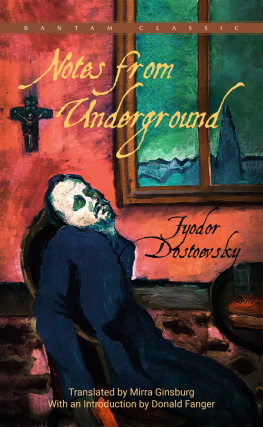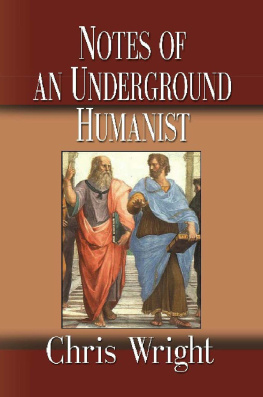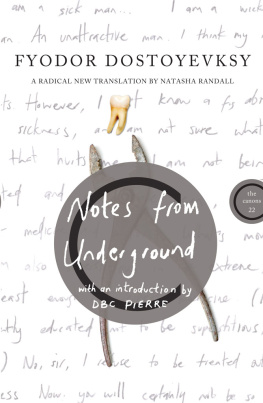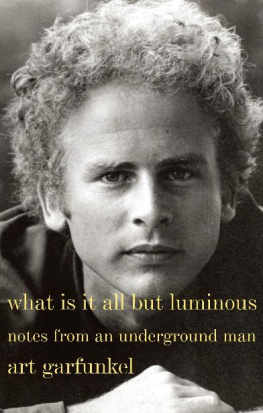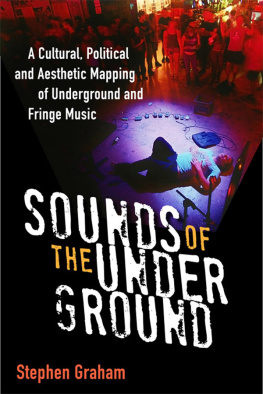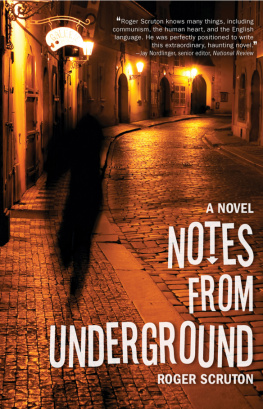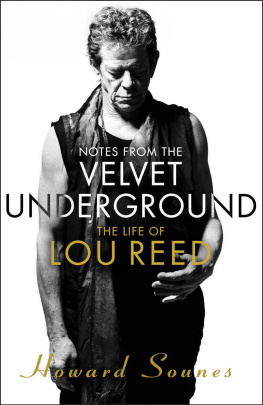Fyodor Mikhailovich Dostoevsky
His life was as dark and dramatic as the great novels he wrote. He was born in Moscow in 1821, the son of a former army surgeon whose drunken brutality led his own serfs to murder him by pouring vodka down his throat until he strangled. A short first novel. Poor Folk (1846), brought him instant success, but his writing career was cut short by his arrest for alleged subversion against Tsar Nicholas I in 1849. In prison he was given the silent treatment for eight months (guards even wore velvet-soled boots) before he was led in front of a firing squad. Dressed in a death shroud, he faced an open grave and awaited his execution when, suddenly, an order arrived commuting his sentence. He then spent four years at hard labor in a Siberian prison, where he began to suffer from epilepsy, and he only returned to St. Petersburg a full ten years after he had left in chains.
His prison experiences coupled with his conversion to a conservative and profoundly religious philosophy formed the basis for his great novels. But it was his fortuitous marriage to Anna Snitkina, following a period of utter destitution brought about by his compulsive gambling, that gave Dostoevsky the emotional stability to complete Crime and Punishment (1866), The Idiot (1868-69), The Possessed (1871-72), and The Brothers Karamazov (1879-80). When Dostoevsky died in 1881, he left a legacy of masterworks that influenced the great thinkers and writers of the Western world and immortalized him as a giant among writers of world literature.
A BANTAM CLASSIC A BANTAM CLASSIC A BANTAM CLASSIC
Ask your bookseller for Bantam Classics by these international writers:
Aristophanes
Dante Alighieri
Honor de Balzac
Anton Pavlovich Chekhov
Sidonie Gabrielle Claudine Colette
Fyodor Dostoevsky
Alexandre Dumas
Euripides
Gustave Flaubert
Johann Wolfgang von Goethe
Jacob and Wilhelm Grimm
Homer
Victor Hugo
Henrik Ibsen
Franz Kafka
Pierre Choderlos de Laclos
Gaston Leroux
Niccolo Machiavelli
Thomas Mann
Karl Marx and Friedrich Engels
Guy de Maupassant
Baroness Emmuska Orczy
Plato
Edmond Rostand
Sophocles
Marie-Henri Beyle de Stendhal
Leo Tolstoy
Ivan Turgenev
Jules Verne
Virgil
Voltaire
Johann David Wyss
NOTES FROM UNDERGROUND
A Bantam Book
PUBLISHING HISTORY
Notes from Underground was first published in 1864
First Bantam edition / December 1974
Bantam Classic edition / October 1981
Bantam reissue / March 1992
Bantam reissue / April 2005
Published by
Bantam Dell
A Division of Random House, Inc.
New York, New York
This is a work of fiction. Names, characters, places and incidents either
are products of the authors imagination or are used fictitiously.
Any resemblance to actual persons, living or dead, events,
or locales is entirely coincidental.
All rights reserved.
Translation copyright 1974, by Mirra Ginsburg.
Introduction copyright 1974 by Donald Fanger.
The Dostoievsky by Emil Filla, courtesy of Art Resource, New York
Bantam Books and the rooster colophon are registered trademarks of Random House, Inc.
ISBN 0-553-21144-7
Printed in the United States of America
Published simultaneously in Canada
OPM 37 36 35 34 33 32 31 30 29 28
Content
Part One:
Underground
Part Two:
On the Occasion of Wet Snow
Introduction
In the 110 years since its first publication, Notes from Underground has lost none of its power to fascinateto provoke, worry, repel, baffle, and move. If anything, that power has grown with time. The paradoxes of the nameless narrator resonate for us as they could not have done for Dostoevskys contemporaries, for the political cataclysms and cultural revolutions of our century compel us to recognize (if not embrace) the kinship on which he insists, to see something of ourselves in his caricature. Freud and the whole body of specifically modern literatureincluding Dostoevskys own later novelshave furnished a set of contexts that make his terms intelligible, even familiar. They also confirm the status of Notes from Underground as one of the most sheerly astonishing and subversive creations of European fiction.
This is not simply a matter of content, of the characters painful and scornful conclusions, or even (the words are Thomas Manns) of his corrosive radical frankness. More important is the way Dostoevsky alters the rules of the literary gameand forces us to learn them as we go. A novel requires a hero, his wily soliloquist acknowledges, but here theres a deliberate collection of all the traits for an antihero.... All this will produce an extremely unpleasant impression. And yet, he taunts his reader, I may even be more alive than you are. Do take a closer look!
There is no avoiding the invitation. This confession (as Dostoevsky first entitled it) begins with I, but it ends provocatively with we; in fact the speaker has involved the reader from the beginning, addressing him directly, anticipating his reactions, preempting his judgments, denying him the comfortable role of spectator. (Just so Baudelaire challenges the reader of his Fleurs du mal: Hypocrite lecteur!mon semblable, mon frre... The underground man, in short, traps his reader into a relationship.
It is worth insisting on this fact because it can guard us against tempting simplifications. The Notes abound in propositions about questions that continue to concern our age: self-knowledge and self-definition, the loneliness of urban man, the nature (and value!) of happiness, the power of ideology, the intrications of spirit, and the obduracy of flesh. That is why Dostoevskys text has proven so legitimately attractive to students of philosophy, psychology, intellectual and political history. But these propositions must not be taken as expressing Dostoevskys viewsor even, simply, those of his character.
Already with his first novel, Poor People, Dostoevsky complained about the way readers tended to confuse him with his hero. They are used to seeing the writers mug in everything, he wrote his brother, but I havent shown mine. It never occurred to them that its Devushkin [his character] speaking, not I, and that Devushkin cannot speak in any other way. The point is crucial: Dostoevsky, a relatively undistinguished thinker outside his fiction, was a genius at dramatizing ideas, bringing them to incandescent life, setting them in confrontation with each other, and testing them in action. All his novels are a play, however serious, with ideas. The responsibility for any given view belongs to the character enunciating it, andjust as in lifewe must take into account all that we know and suspect of that character if we are to understand what he says.
In Notes from Underground, for example, the underground mans monologue moves strikingly from what is most personal to what is most general. His views arise from experience, his experience corroborates the views; each seems to authenticate the other. But which are we to take as primary? The question is importantand unanswerable. Is he really proving that modern urban man can neither do nor become anything? Or is he constructing a casuistical theory to excuse his own failures? We choose either answer at our peril because, after all, he has given us the choice. There is no other, because there is no other material than what he presents. Yet if we accept it as offered, we have entered his own endless dilemma.
Here is a central feature of that special kind of fiction Dostoevsky created in the great novels beginning with

